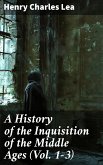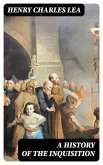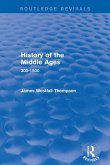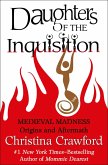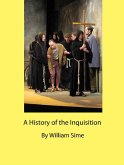In "A History of the Inquisition of the Middle Ages," Henry Charles Lea presents an exhaustive analysis of the Inquisition's origins, operations, and societal impact during the Middle Ages. Spanning three volumes, this meticulously researched work employs a rigorous historical method, blending vast archival evidence with a narrative style that is both scholarly and accessible. Lea's narrative delves into the theological underpinnings and political machinations of the Inquisition, contextualizing it within broader socio-religious movements of the time. His exploration of key figures, such as the infamous Torquemada, and the varying regional practices of the Inquisition provides a rich tapestry of medieval life marked by conflict, fear, and the struggle for power and orthodoxy. Henry Charles Lea (1825-1909) was a prominent American historian and a pioneering scholar in the study of medieval history and the Inquisition. His upbringing in a Quaker family instilled in him a lifelong fascination with issues of justice and morality, which permeates his analysis of a period rife with persecution. Lea's extensive research, bolstered by his fluency in several languages and access to various European archives, enables him to present a critical perspective on an oft-misunderstood topic. Lea's work is essential reading for anyone interested in medieval history, religious studies, or the evolution of judicial systems. His rigorous scholarship offers profound insights into the complexities of faith and power, inviting readers to reflect on how these themes resonate throughout history and into contemporary discourse.
Dieser Download kann aus rechtlichen Gründen nur mit Rechnungsadresse in A, B, BG, CY, CZ, D, DK, EW, E, FIN, F, GR, H, IRL, I, LT, L, LR, M, NL, PL, P, R, S, SLO, SK ausgeliefert werden.



